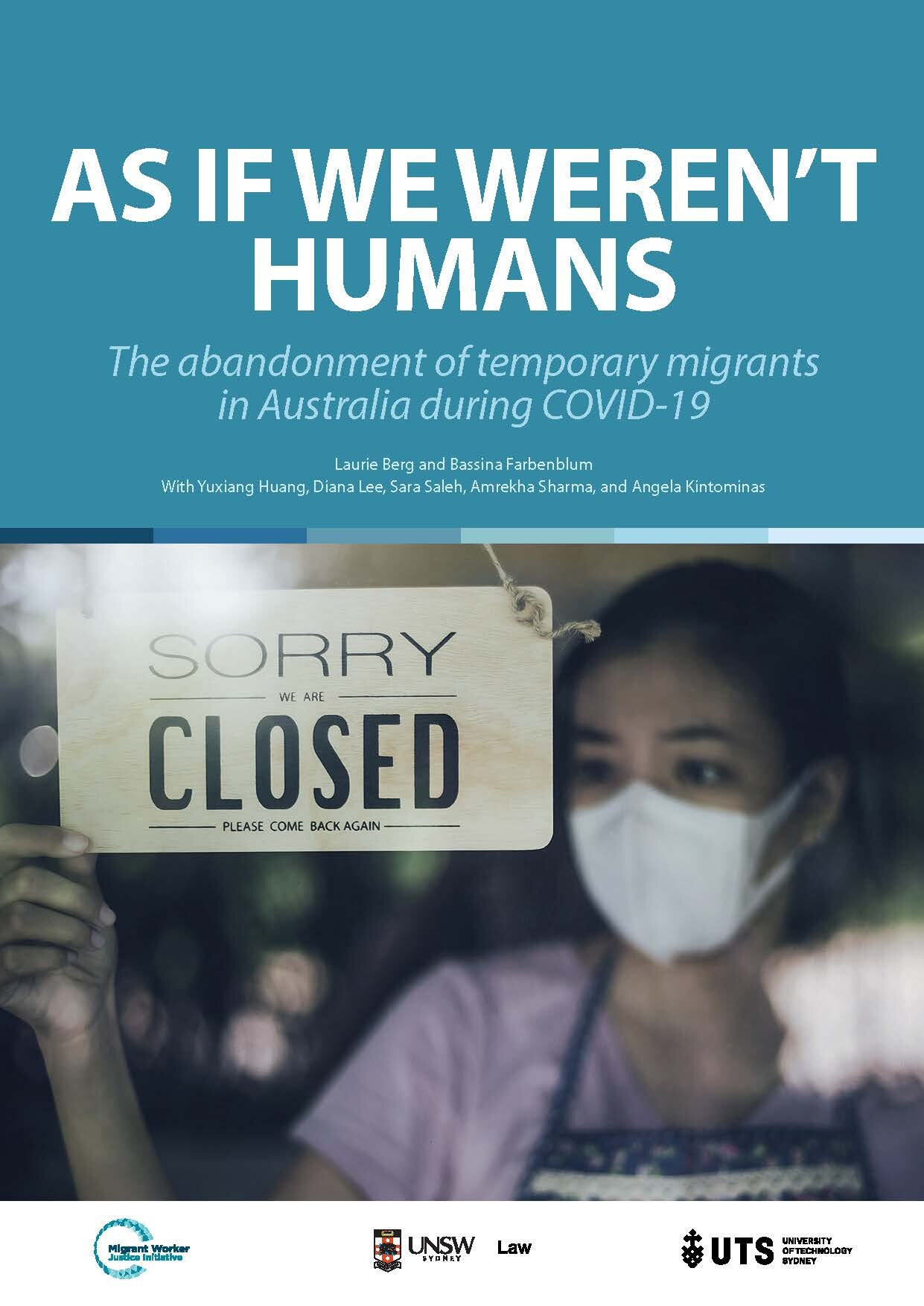In March, 2020 we conducted an online survey of 6,105 international students and other temporary visa holders, on their experiences in Australia during the first COVID lockdown that year. Our findings were published in September 2020 in the report As If We Weren’t Humans: The Abandonment of Temporary Migrants in Australia During COVID-19.
Close to three quarters of survey respondents had lost all or most of their work during the pandemic. Thousands were left unable to pay for food and rent, having been categorically excluded from government wage subsidy schemes. More than half (57%) believed their financial stress would deepen by year’s end, with one in three international students forecasting their funds would run out in the next 3 months.
This was the first study to reveal the depth of social exclusion, racism and deeper emotional consequences of Australia’s policies, which significantly impacted Australia’s global reputation.
Three in five international students and backpackers were less likely to recommend Australia as a place for study and travel, based on their treatment during COVID-19. The findings indicate potential long-term economic and diplomatic consequences of federal government policies which were at odds with those of other similar countries such as the UK that included temporary migrants in wage subsidies. There are also detailed findings on increased prevalence of racism against Chinese and other Asian migrants during the pandemic. We recommended the government urgently reconsider its policies. In particular, it called upon the government to provide wage subsidies and other support to address the critical humanitarian need identified, and to repair the immediate and longer-term damage caused by Australia’s exclusion of these integral members of our community and workforce. Our piece for The Conversation, 'Garbage' and 'cash cows': temporary migrants describe anguish of exclusion and racism during COVID-19, explains the broader long-term impacts of the Australian government’s exclusion of temporary migrants during the pandemic.
Following this research, and a concerted campaign by a broad coalition of organisations across the community sector relying on the large-scale data, the federal government reversed this policy, including temproary visa holders in financial support schemes in subsequent COVID lockdowns.


